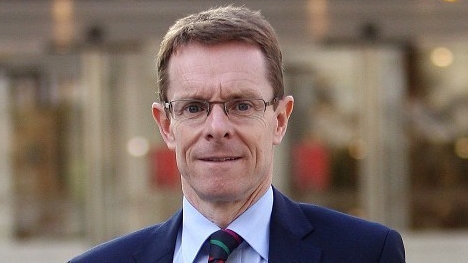A comment piece by West Midlands Mayor, Andy Street.
It is an often quoted stat that Birmingham is the youngest city in Europe, with 40% under-25s. The West Midlands as a whole is undoubtedly a young and diverse place.
As Mayor, it is absolutely my duty to ensure I support young people in their endeavors to engage with politics. The disparity between young people and politicians can seem daunting to both sides.
Politicians, policy makers, and law enforcement figures, who are often older and naturally less in-touch with the younger generations, can be perceived as completely unapproachable to young people, and vice versa while many young people feel that politicians don’t have their best interests at heart.
I have certainly tried to do my bit. I am often surprised by the number of young people who attend my regular Ask Andy question and answer events. The work of the Leadership Commission to identify ways we can ensure our region’s leadership is more reflective of our population was focused at the younger generation.
Things are not all doom and gloom when it comes to young people’s political drive. The last general election saw a phenomenal increase of young voters both registering to vote, and actually voting- with turnout up by 25%.

Perhaps then, the way in which young people engage with political ideas is changing- the doors to parliament may seem closed for those within the 18-24 bracket, but a window has certainly been opened. You only need to look at a protest on the street to see that young people rally with huge enthusiasm behind the causes they care about.
From one person wanting to make a change, creating an event on Facebook, and then allowing it to come into fruition, it’s arguably easier than ever before for young people to make themselves heard. It’s not that they’re not interested in politics, but that politics- at least that which is outdated and stale- isn’t interested in them.
This is why it’s important to listen to the ways in which young people engage with politics, attempt to make changes in society, and make sure their voices are heard, in order to effectively translate their passion and enthusiasm into tangible change.
I’m looking forward to speaking on this subject at the Brum Youth Trends Summit, and I urge you to attend if you’re at all concerned about your place as a young person within the current political landscape, or if you’re just somebody that recognises the importance of raising young people’s voices so they can be heard.
The fact that Beatfreeks has taken on this research via the Brum Youth Trends Survey, in order to capture insight that we can proactively use to develop our city, ensures that we are making space for the next generation to thrive. Of course, young people can, and do, speak for themselves, but where the majority of the power in politics is in the hands of older generations, there is only so far young people can progress without a helping hand from the rest of us. If we do not support our region’s youth, then we do not support our region’s future.
